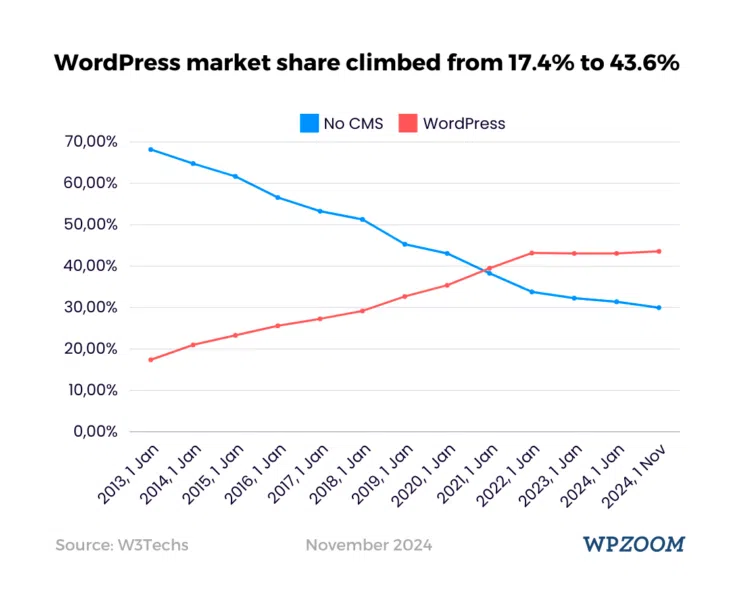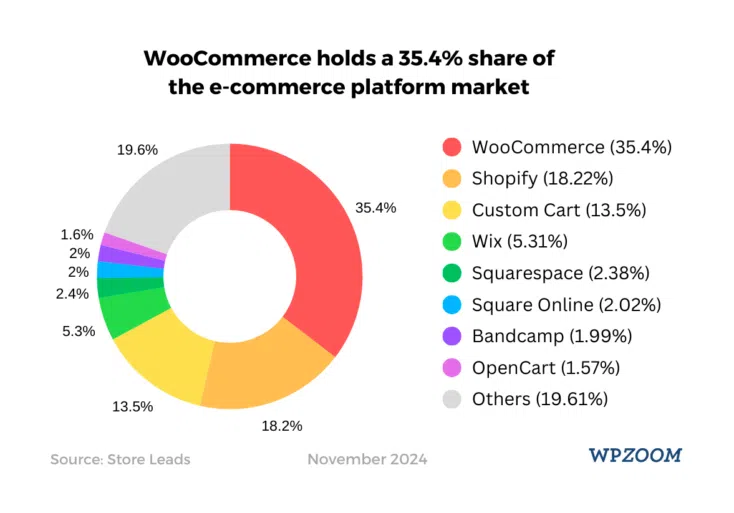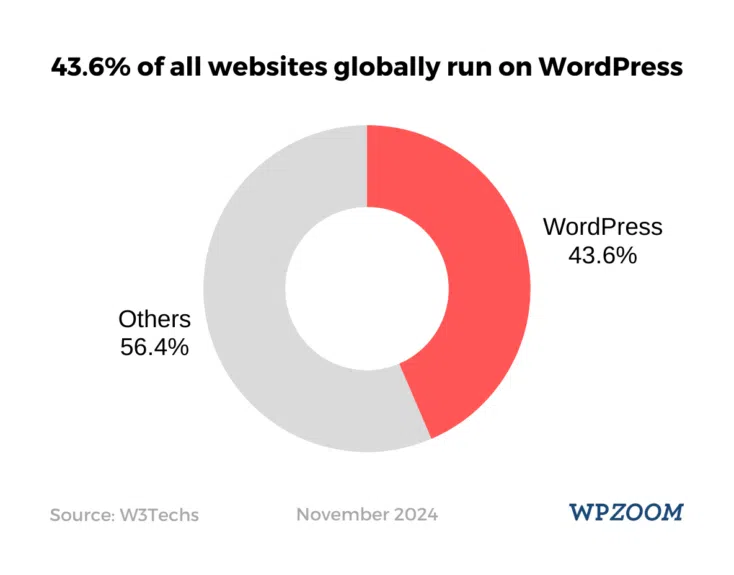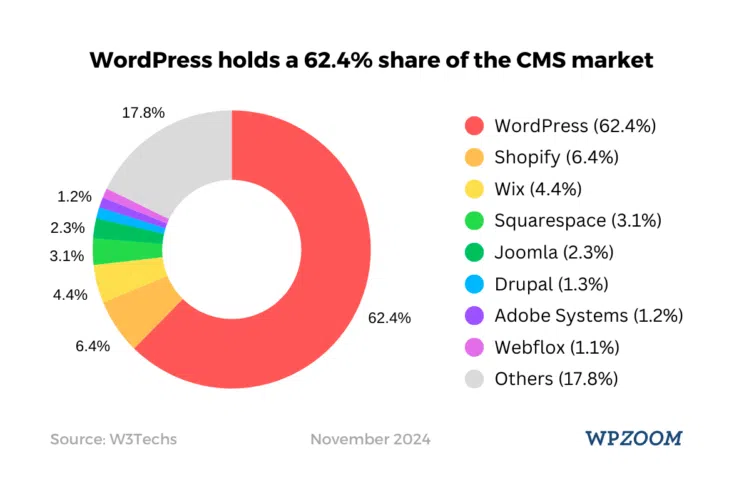Choosing the right eCommerce plugin for your WordPress site can feel overwhelming like picking a needle from a haystack! But trust me after years of wrestling with websites and helping countless businesses get online I’ve got a handle on this. Let’s dive into seven popular options – each with its own strengths and quirks. This isn’t just a list; it’s a roadmap to choosing the perfect plugin for your needs.

WooCommerce: The Heavyweight Champion
You’ve likely heard of WooCommerce – and for good reason. It’s the 800-pound gorilla in the WordPress eCommerce jungle. It’s incredibly customizable incredibly popular and for many online businesses the obvious choice. Why? Because it offers a mountain of features right out of the box.
Think about this: you get robust product management tools options for managing digital downloads various payment gateway integrations (Stripe PayPal you name it!) shipping calculations and tax calculations – all built-in.
Its flexibility is truly impressive; I’ve seen WooCommerce power everything from tiny boutiques to massive online retailers.

But WooCommerce’s real power lies in its extensibility.
Seriously – the sheer number of extensions is mind-boggling! Need subscriptions? Got it.
Need advanced inventory management? Check.
Want to integrate with your CRM? Absolutely! There are thousands of extensions both free and paid meaning you can practically tailor WooCommerce to your exact requirements.
And for you coding whizzes its open-source nature means you can dive deep and customize it even further.
However this flexibility comes at a cost.
The sheer number of choices can be paralyzing especially for beginners.
Moreover adding tons of extensions can slow down your website if you’re not careful.

You’ve gotta be smart about which extensions you choose.
It’s also worth remembering that although WooCommerce itself is free many useful extensions and themes will cost you extra.
WooCommerce Pricing and Scalability
WooCommerce itself is free but remember that you’ll likely incur costs for things like themes extensions and hosting.
Check our top articles on 7 Popular eCommerce Plugins for WordPress

The costs can range from a few hundred bucks to tens of thousands depending on your needs.
However its scalability means it can grow with your business making it an attractive long-term solution.
North Commerce: Lightweight and Agile
If WooCommerce feels like overkill consider North Commerce.
It’s designed for speed and simplicity.
It prioritizes a lean setup minimizing the need for numerous plugins – a common culprit in sluggish websites.
It aims to give you a fast-loading user-friendly store without the bloat.
One of North Commerce’s clever features is its webhook functionality.
Webhooks allow you to automatically send order data to other apps like Zapier or Make.
This is a huge time-saver allowing you to automate tasks and integrate your eCommerce operations seamlessly with other tools in your workflow.
It also offers pre-built design templates which is a great advantage for those who don’t have the time or expertise to create a website from scratch.
It’s streamlined efficient and perfect for businesses that value speed and simplicity.
But North Commerce isn’t a silver bullet.
🤔 Choosing an eCommerce plugin is a total mindf*ck, right? I felt the same way! But don’t worry, I’ve got you covered. This guide is a lifesaver! 🚀 Check it out and pick the perfect plugin for YOUR needs: Level up your eCommerce game! 🔥

Because it focuses on simplicity it might lack some of the advanced features found in other plugins.
🤔 Choosing an eCommerce plugin is a total mindf*ck, right? I felt the same way! But don’t worry, I’ve got you covered. This guide is a lifesaver! 🚀 Check it out and pick the perfect plugin for YOUR needs: Level up your eCommerce game! 🔥
Also its community support isn’t as large as WooCommerce’s which means finding solutions to problems might take a little longer.
North Commerce Pricing Plans and Limitations
North Commerce offers a free plan with limited features and two paid plans with varying levels of support and functionality.
This makes it an attractive choice for bootstrapped businesses or those who need a simple cost-effective solution.
However it might not be suitable for businesses with complex requirements or large product catalogs.
Paid Memberships Pro: Beyond eCommerce – Membership Sites
Paid Memberships Pro isn’t strictly an eCommerce plugin but it deserves a mention because it allows you to create and manage membership sites – a powerful model for delivering online courses selling subscriptions or offering exclusive content.
This plugin allows you to easily control access to content based on membership levels enabling you to create a tiered system with varying levels of access.

It offers granular control over what members can see including pages posts custom post types and even individual blocks within a page It’s great for drip-feeding content – releasing materials on a schedule – which is perfect for online courses or subscription services.
Plus it handles recurring payments subscriptions trials pauses and renewals effortlessly.
It even provides detailed reporting on member activity and financial performance.

Seriously it’s a comprehensive tool for managing any kind of membership based business model.
But Paid Memberships Pro’s complexity can also be a drawback.
Setting up a complex membership site with multiple tiers and content restrictions requires careful planning and configuration.
It’s not as intuitive as some other plugins and it might require some technical expertise for businesses with unique membership structures.
Paid Memberships Pro Pricing and Use Cases
Paid Memberships Pro offers different pricing tiers ranging from basic to enterprise catering to various needs and budgets.
This plugin is perfect if you are planning to create a membership-based website especially for those who want to sell online courses or create a subscription service.
BigCommerce: The Hosted Powerhouse
BigCommerce is a completely different animal.
It’s a fully hosted eCommerce platform – meaning you don’t have to worry about server management or technical stuff.

You simply create your store on their platform.
It’s remarkably robust supporting multi-channel selling across Amazon eBay Facebook Instagram and more.
This lets you reach a much wider audience.
BigCommerce shines with its built-in SEO features marketing tools and a vast selection of payment gateways – simplifying the process of accepting payments from customers around the globe.
Its customizable themes allow you to create a stunning online store without needing advanced coding skills.

Plus everything is handled by them meaning you can focus on selling not server maintenance.
However being a hosted solution you’re locked into their platform.
This lacks the flexibility of plugins like WooCommerce which offer more control over your store’s technical aspects.
Plus the cost can be higher than self-hosted options especially as your business grows.
BigCommerce Pricing and Scalability for Businesses
BigCommerce offers several pricing plans each designed for different business sizes and sales volumes.
Their pricing model is tiered meaning the cost increases with the increase in the number of features.
They don’t charge transaction fees which is a significant advantage compared to some other platforms.
But it’s vital to check out their payment gateway options and their associated fees.
Shopify Buy Button: A Hybrid Approach
The Shopify Buy Button is a sneaky contender.
It’s not a full plugin; instead it lets you embed individual Shopify products directly onto your WordPress website.
This is brilliant if you already have a Shopify store and want to extend your reach to your existing WordPress audience without rebuilding everything.
You get the benefit of Shopify’s robust backend (payment processing inventory management etc.) but maintain your existing WordPress site.
It’s a great middle ground for businesses that want the best of both worlds – the familiarity of WordPress and the power of Shopify’s eCommerce infrastructure.
However it’s not a complete eCommerce solution.


You’ll still need Shopify for core management meaning you’re relying on two platforms.
Also customizing the integration might require some technical expertise.
Shopify Buy Button Pricing and Limitations
The pricing depends on your existing Shopify plan which varies from basic to enterprise-level plans.
The additional costs to consider might be related to app usage theme customization and transaction fees if you choose not to use Shopify Payments.

Ecwid: Seamless Integration and Multi-Channel Selling
Ecwid is another superb option known for its seamless integration with WordPress.
It works beautifully with any theme and requires zero coding skills.
It automatically syncs sales across various channels – your WordPress site Facebook and more – keeping everything consistent.
It supports various product types – physical digital memberships services – making it incredibly versatile.
Ecwid offers secure checkout various payment options and integrates nicely with shipping services.

Higher-tier plans unlock features like abandoned cart recovery and advanced email marketing which are goldmines for boosting sales.


But Ecwid’s free plan has limitations on the number of products you can list.
The higher-tier plans are more expensive and it’s important to account for transaction fees from payment providers and costs for add-ons.
Ecwid Pricing Tiers and Product Limits
Ecwid’s pricing plans range from free (with limited features) to enterprise level.
🤔 Choosing an eCommerce plugin is a total mindf*ck, right? I felt the same way! But don’t worry, I’ve got you covered. This guide is a lifesaver! 🚀 Check it out and pick the perfect plugin for YOUR needs: Level up your eCommerce game! 🔥
Their pricing scales with the number of features you need which can be a bit more costly than other plugins.
The free plan in particular might restrict the number of products you can sell.
SureCart: A Customizable Checkout Experience
SureCart is a powerful plugin that integrates directly into WordPress allowing you to add eCommerce elements to any page or post.

Its compatibility with major page builders (Gutenberg Elementor) lets you create truly customized checkout experiences.
This makes it incredibly flexible allowing you to perfectly integrate your online shop into your existing site’s design.
Its drag-and-drop checkout form builder is a game changer for creating bespoke checkout experiences.

It supports multiple payment gateways and includes marketing tools like discount codes and abandoned cart recovery – all critical for boosting sales.
Its main disadvantage is that it may require a higher level of technical knowledge compared to some other plugins.
Finding help within the community may also prove to be challenging.
SureCart Pricing and Target Audience
SureCart’s pricing is competitive and tiered making it a suitable choice for small businesses and digital creators.
The pricing model like many other plugins works on a tiered system and the cost increases as you scale up the level of features.
Ultimately the “best” eCommerce plugin depends entirely on your business. Consider your budget technical skills and long-term goals when making your choice. And remember – with the right hosting (like Pressable!) you can ensure your online store runs smoothly regardless of the plugin you choose.

